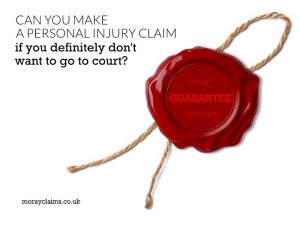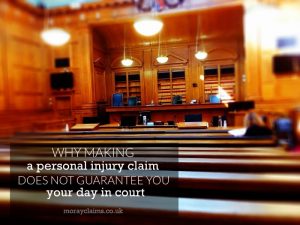Whiplash injuries are problematic because they are soft tissue injuries. They cannot be identified or confirmed on any form of medical scan. They can be difficult to diagnose. Because of this, they are controversial injuries. They can be exaggerated. It is said that they can even be faked. In May 2018, the insurer Aviva reported that the value and volume of fraudulent claims detected by them had increased for the second consecutive year. Aviva said it now rejected around one in eight whiplash claims because they were suspect or considered to be fraudulent. Putting the case for personal injury victims, on the other hand, the Association of Personal Injury Lawyers (APIL) pointed out that on the Association of British Insurers' own figures, only 0.17% of all motor claims are proven to be fraudulent. Motor claims include property claims due to fire, theft and damage, as well as personal injury. In other words, not all motor claims involve a personal injury element, so only a Continue Reading
Can you make a personal injury claim if you definitely don’t want to go to court?
Tilley hats might be the best in the world. They’ve been called “legendary” and “iconic”. Tilley hats float and, if lost or stolen, can be replaced for half their full purchase price. Should the hat wear out due to normal wear and tear, poor workmanship or faulty material, it will be repaired or replaced free of charge. Tilley hats are guaranteed for life. In 2013, a Guardian reader reported that, when the fabric of their hat split after 17 years, Tilley still honoured the lifetime guarantee and replaced it. They’re expensive hats but the various risk-reversal elements clearly help keep them desirable purchases. A guarantee can make a big difference to how likely we are to choose a product or service. In the context of personal injury compensation claims, not everyone wants to have their day in court. On the other hand, in another article on this website, we’ve considered the pros and cons for those who want a guarantee that their personal injury claim’s outcome will be Continue Reading
Why a personal injury claim does not guarantee you your day in court
Can you have your day in court, with a personal claim, if that's what you want? Donald Trump used the Rolling Stones’ recording of their 1969 song “You Can't Always Get What You Want" during his 2016 primary and presidential campaigns. Following the Republican National Convention in July 2016, which was widely televised, the Stones went public with their views on the use of the song composed by Keith Richards and Mick Jagger. They stated that they did not endorse Trump. They also requested that Trump should stop using their songs to support his message. Despite these requests, Trump continued his use of the song at rallies, even beyond the 2016 presidential elections. It seems that, even if you are the Rolling Stones, you can’t always get what you want. It is also the case that, if you are an injured person with a personal injury compensation claim, you can’t always get what you want – and we’re going to look at some aspects of that in this article. Most people ask if they Continue Reading
Uninsured and untraced drivers and personal injury claims
It's compulsory to have insurance to cover the risk that a third party will suffer loss because of your driving That’s the case whether the “injury” is to property or a person. As at 2016, however, figures published by Churchill Insurance suggested that, across the UK, there were estimated to be over a million uninsured motorists. In the worst urban hotspots (e.g. parts of London), you have as much as a one in eight chance that any motorist involved in an accident with you will be uninsured. What are important things to know if you are involved in an accident with an uninsured (or untraced) driver? The Government set up the Motor Insurers’ Bureau (MIB) in 1946. It is a limited company and it aims to help those who have suffered loss due to the actions of an uninsured or untraceable driver. The underlying principle is that no person should be left uncompensated because a driver who causes an accident is uninsured. Since the 1970s, the MIB has been an important means by Continue Reading



